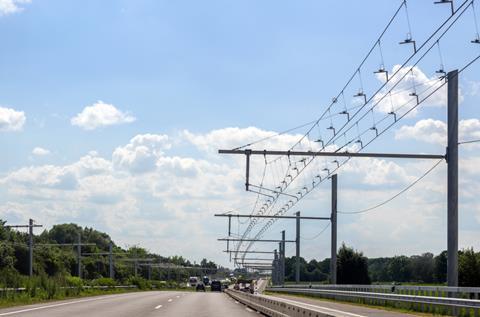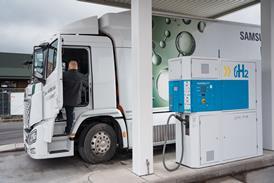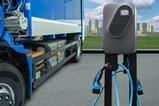Sweden is leading the way in sustainable transportation with its plan to turn a highway into a permanent electrified road - the first of its kind in the world.
As the EU passed a landmark law last month to require all new cars sold to have zero CO2 emissions from 2035, European countries are rushing to prepare the infrastructure needed for fossil fuel-free mobility.

On an electric road, cars and trucks can recharge while driving through dynamic charging, which allows them to travel longer distances with smaller batteries and avoid waiting at charging stations. The Swedish transport administration, Trafikverket, believes electrification is the way forward for decarbonising the transport sector and has been piloting electrified roads for several years, including the world’s first temporary electric road.
The chosen motorway, European route E20, connects logistic hubs between Hallsberg and Örebro, located in the middle of the country’s three major cities, Stockholm, Gothenburg, and Malmö. The project is currently at the procurement stage and is planned to be built by 2025. There are three types of charging methods under consideration: the catenary system, inductive system, and conductive system.
The catenary system uses overhead wires to provide electricity to heavy-duty vehicles like buses and trams. Conductive charging works like a charger pad for smartphones where special electric vehicles have a pad or plate on the road that wirelessly charges the vehicle when it’s on top. The inductive charging system uses special equipment buried underneath the road that sends electricity to a coil in the electric vehicle, which then uses that electricity to charge the battery.
While much of the Electric Road System (ERS) focuses on trucks, a recent study suggested that private cars could also benefit. The study simulated the movement patterns of 412 privately driven cars on parts of Swedish national and European roads and found that combining home charging with dynamic charging could reduce the size of the battery by up to 70 per cent. Researchers also found not all roads in Sweden need to be electrified, with electrifying only 25 per cent of all roads being efficient for the system to work.
Sweden plans to have an expansion of a further 3,000km of electric road by 2045, and it has partnered with Germany and France to exchange experience through authority and research collaborations on electric roads. Germany and Sweden have had demonstration facilities on public roads for several years, and France plans to procure a pilot section with an electric road. Other countries like Italy, the UK, the United States, and India are also doubling down on building ERS systems.


















